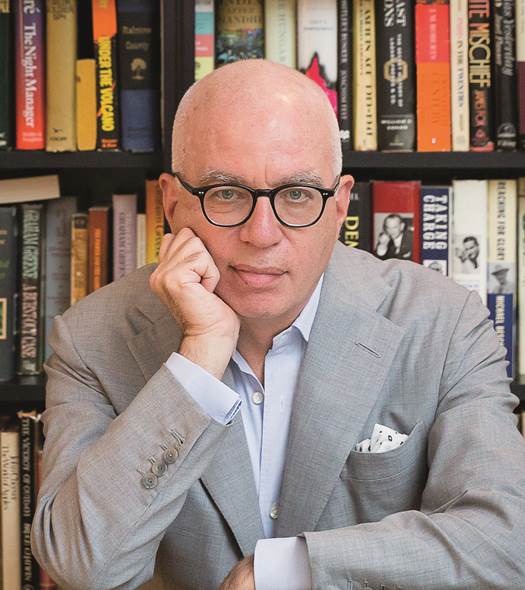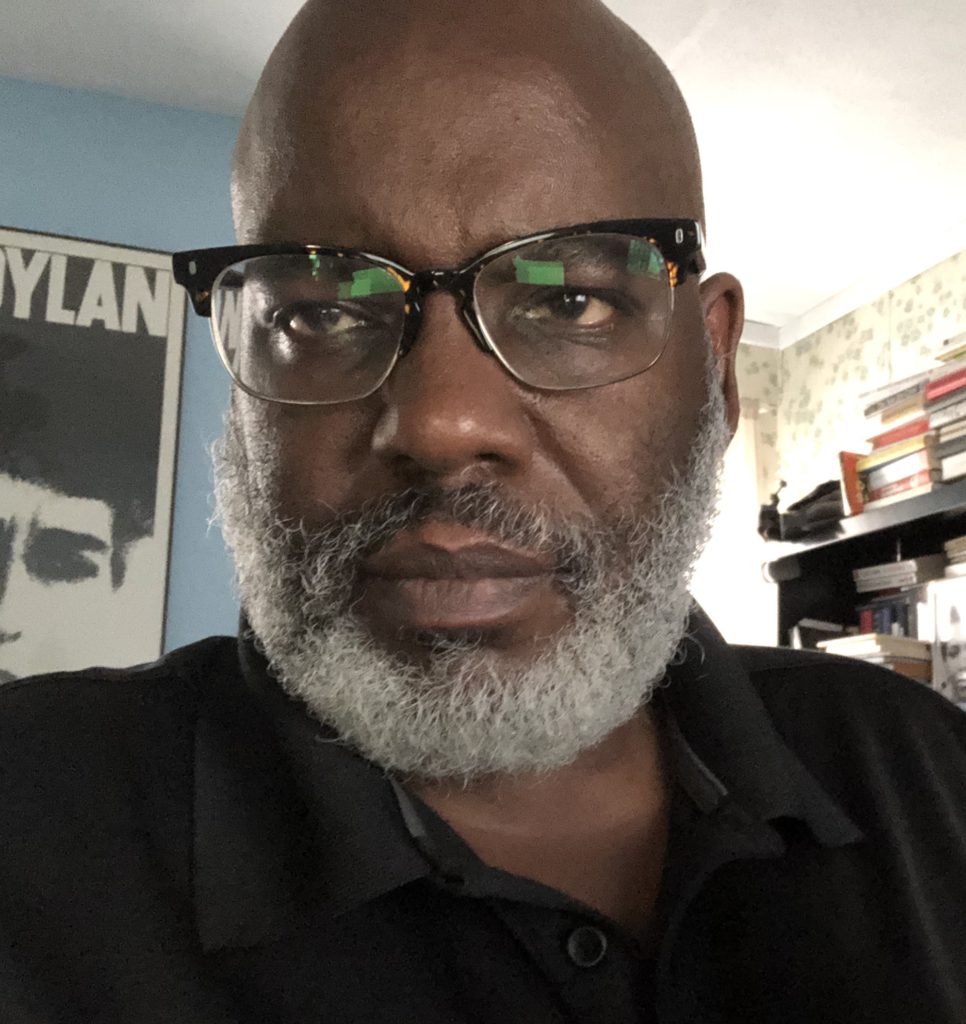
By Tony Norman
NSNC President
Michael Wolff is the author of three national bestsellers on the Trump administration: “Fire and Fury,” “Siege,” and his latest, “Landslide: The Final Days of the Trump Presidency.” He’s also the author of six other books, including one about the early days of the Internet and another about the media baron Rupert Murdoch. Wolff’s award-winning and insightful columns for New York magazine, The Hollywood Reporter, British GQ, Vanity Fair, and the Guardian have been required reading for years. It is impossible to be bored by a Michael Wolff column. During his book tour for “Landslide,” the longtime columnist graciously submitted to a Q&A.
Tony Norman: Three substantial books about the Trump administration in four years is phenomenal by any metric. I believe “Fire and Fury” was one of the first books out the gate with what were then mind-boggling glimpses into the Trump White House and how it governed. Because Trump is so unconventional, did you decide at the outset to leave the more tendentious details to the reporters who would follow in your wake so you could focus on the big controversies that would occupy the news cycle for weeks at a time?
Michael Wolff: I wouldn’t say I had a plan. There was so much going on, I either took what was in front of my face or let the sources who I most trusted guide me.
Norman: I hope you take this as the compliment it is meant to be, but while reading “Fire and Fury,” “Siege,” and now “Landslide,” I’m struck by how similar your writing and reporting style is to what long-form columnists do. You don’t write like a conventional White House reporter. You have a feel for the inner drama in every scene and an impeccable sense for what’s going to blow peoples’ minds. You have a point of view. You never bury the lead or engage in making something tedious in the name of respectability. You seem to be allergic to the tedious details that weigh down similar books covering the same territory. How would you describe your journalistic philosophy in approaching big stories featuring bigger-than-life characters like Trump?
Wolff: I’m a writer rather than a political writer. My interest is in character and in communicating experience. And in terms of long-form column writing, I suppose with several million words under my belt as the long-form columnist at New York magazine, Vanity Fair, and various other posts, I am the long-form columnist model. In that role, I was always trying to both tell a story and interpret a story. And, indeed, then go a step beyond, to try to say what everyone wanted to say but, because of the constraints of their own form — news writing, television, whatever — or really because those forms were wedded to the conventional wisdom, couldn’t be said.
Norman: A lot of journalists who aren’t columnists are deeply insulted when anyone suggests they aren’t as neutral as humanly possible in their reporting. Do you claim to be agnostic about your subjects before you begin writing? If not, to what extent do you feel your P.O.V. is just as legitimate a tool of inquiry as the “just-the-facts, ma’am” didacticism of Washington journalists who labor over a book for two years longer than you do?
Wolff: I’m mostly drawn to character. It’s seldom a matter of liking or not liking, or agreeing or not agreeing. Rather the issue is what or who might bring out the best writing from me. Who do I think I can best describe. Biden, for instance, who I certainly agree with more than Trump, would not seem to be all that interesting a subject for me. Trump, however reprehensible, is, at least for me, quite a writer’s dream.
Norman: In terms of sheer process, how were you able to get the stories you were able to reel in from what should have been a very suspicious West Wing by the time you were working on your second book? Did you have to seduce the same sources all over again or did you set about cultivating new, even less-inhibited sources? Why weren’t they more guarded after seeing the kerfuffle generated by “Fire and Fury”?
Wolff: For reasons I can’t exactly explain, people seem to like to talk to me. Perhaps because I just let them talk. When I sit down with someone I’m not really heading anywhere in particular. Or I’m willing to go where they want to go. The Trump world was an especially amenable place for this approach because everyone close to Trump found the experience so novel and unsettling that they wanted — or needed — to share it.
Norman: What’s the Michael Wolff writing process these days and has it evolved after three books on the Trump White House?
Wolff: Nope. It’s the same as it has been for forty years or so. I get up in the morning and go to work. Nothing gets in the way. I don’t quite want to say that the Trump books have written themselves, but, given no end of action and absurdity, they really have seemed often to write themselves. “Landslide” was written in three months. I was bragging to a friend about this and he said, “Well, you’ve had a lot of practice.”
Norman: I suspect you write with a grand narrative in mind based on the facts you’ve already assembled, but you’re not one of those reporters who dumps every page of his notebook into the story. What’s your criteria for what goes in and what stays out? The late Elmore Leonard said writing a great story consists of editing out all of the boring parts.
Wolff: When I was writing an 1,800-word weekly column for New York magazine I used to think the secret was only knowing 1,800 words about my subject. I like to think that I write like I talk and therefore I think about what I’m writing as I would a story that I’m telling. So, yes, I’m not writing just or mostly to communicate information, but to give a sense of the whole. Again, not the facts, but the experience. If I’m telling a story and suddenly have to leave the room, I want the story to be good enough for people to wait for me to return to finish it.
Norman: I assume you’re always trying to make sense of a world drenched in minutia that is equal parts absurd and banal. Do you outline each chapter on a white board the way some screenwriters do and fill in the beats with relevant quotes and narrative? What do you do?
Wolff: I begin at the beginning and write through to the end. The details follow the sentences, not the other way around.
Norman: The Trump administration did more than any other administration since, arguably, Nixon to make ordinary Americans send 300-500-page books by political journalists up the bestseller lists. Your books seem to strike a resonant chord with your fellow journalists and the public. Are readers responding to your P.O.V. or are they simply digging the particular way you lay out the facts? Or both?
Wolff: Hard for me to say. I know that for a while there seemed to be some resentment about the way I wrote, that I was too much a writer and not enough a “journalist.” But I think the Trump years have been so confounding that more people have come to recognize that there are going to have to be a lot of different routes into this heart of darkness.
Norman: What’s your take on the perennial debate about journalistic objectivity and the role of subjectivity and P.O.V. in political journalism? Does daily reporting of radical political personalities have to change in order to capture the complexity of the threat to democracy folks like Trump and his inevitable imitators represent?
Wolff: I think there is no one view and no one way. I can only offer my view. And since I’m one of the few writers covering this topic not employed by a major news organization and subjected to those conceits, rules, lawyers, and other corporate interests, I may be the only writer who can promise it’s only my view.
Norman: Are there columnists out there who do what you do on a much smaller scale — 600-750 words per column — that grab your attention on a regular basis? Which journalists/writers, living or dead, inspire you? Whose prose leaps into your head when you’re composing your White House exposes?
Wolff: Mailer, I suppose. Others of the great era of independent writers/journalists in the 1960s and 1970s when I began my career. Anything that is not newspaper writing. Jack Shafer at Politico is the best columnist writing today in the U.S.
Norman: In a recent guest opinion piece in The New York Times, you predicted that, barring some unforeseen circumstance, Trump will run again for a second term. I saw another pundit make a similar prediction, but she went further and said Trump would win because the same conditions that made his improbable 2016 win are still in play. Do you agree with that prediction?
Wolff: No, if he runs, he loses. He may be able to inspire a large part of the country because he’s an artful performer. But beyond that he’s a hopeless incompetent. He can’t run a presidential campaign. 2016 will remain the strangest of historic flukes. Norman: Joe Biden appears to be the anti-Trump in every way. His administration is radically competent, if not particularly bold or imaginative. You’re probably less likely to find Steve Bannon-types lounging in the West Wing chomping at the bit to tell you unimaginable things. Is there enough heat in the Biden WH to get your attention, or are you just taking a break at this point after four years of non-stop work?
Wolff: I’m desperate when I’m not working. But Biden is not my kettle of fish. He’s a subject for political reporters. I leave him to them.
Norman: Any advice to the columnists and opinion writers toiling away as the business continues to shift around us? Any words of wisdom would be appreciated.
Wolff: Well, there certainly seems to be lots of demand for opinion writers. But that’s a different kind of writing from what I’ve always done for magazines. And, I’m afraid, since there are no magazines anymore, there isn’t really an opportunity to do opinion writing that is really more of a scenic tour or lovingly told joke which I had the great opportunity to do for so many years.

Tony Norman is NSNC President (2020-2022) and an award-winning columnist with the Pittsburgh Post-Gazette.

